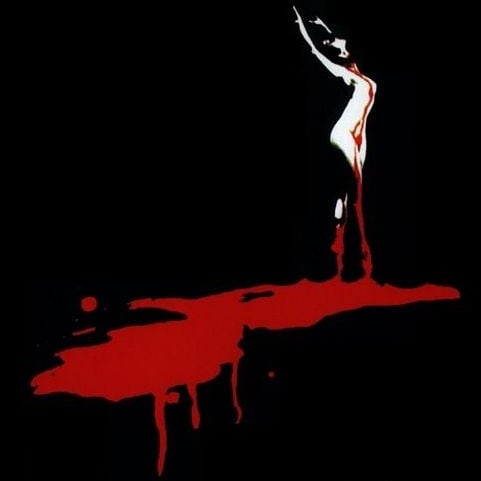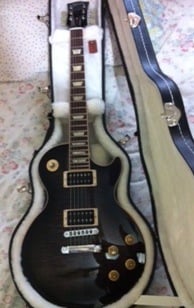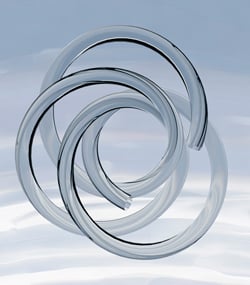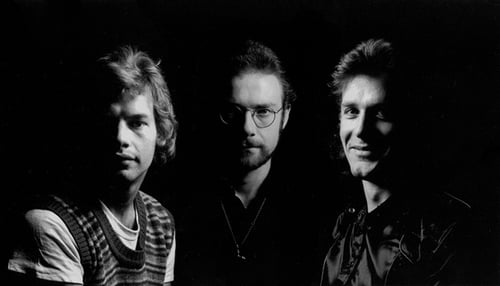| Author |
|
Skalla-Grim 
Forum Senior Member


Joined: July 07 2015
Location: Europe
Status: Offline
Points: 305
|
 Posted: July 22 2015 at 09:30 Posted: July 22 2015 at 09:30 |
 micky wrote: micky wrote:
nothing wrong with that man! 
Sure there are some eggheads who care about that stuff.. but music is music. Music is for the heart and soul.. not an intellectual exercise. One reason prog has such a bad name, or rep, it isn't the music. As an old friend of mine once said here at PA's.. there is nothing better than great prog.. and nothing worse than bad prog. When prog can fall off the cliff of good tastes with most people (excepting as always miltant prog fan) is the lyrical side. While most people don't know or care the theory of what the musicians were trying to do... lyrics .. any knuckle head can hear and understand that. The more serious and arty one gets.. the more chance you come off sounding like a complete moron.. or even worse.. a preachy moron.
Goes back to what I believe.. people just want to hear good music.. the more enlightened like to hear new things be challenged even. That is progressive music, thus the irony with much of prog rock.. being as progressive as my big toe. recycled sounds and ideas. Playing to a style (prog rock) rather than an ethos.. progressive rock.
|
I think there are two questions. 1. Should everything in "prog" be rated on the basis of the term "Progressive Rock"? After all it's only a label made by music journalists, record companies, whatever. Call it art rock, complex rock, advanced rock, whatever. The bands which you are criticizing did not make up that term. It is just used to promote their music. 2. But even if "progressive" was the one and only criterion to judge that music, is it really a commitment to develop new styles and subgenres ceaselessly? Keith Emerson supposedly said: "It is music that does progress. It takes an idea and developes it,
rather than just repeat it. Pop songs are about repetition and riffs and
simplicity. Progressive music takes a riff, turns it inside out, plays
it upside down and the other way around, and explores its potential." In that sense, "progressive" is a description of how you work with melodies, and it has nothing to do with re-inventing your genre permanently. I also don't agree with the anti-intellectualism. I don't think Robert Fripp or Keith Emerson just met their buddies, drank a few beers and then played what their "hearts" told them. It affords hard intellectual work, theoretical knowledge and lots of practice to compose and play that music. And regarding the lyrics ... when I hear some lyrics which make no sense to me, I would assume that I don't understand the lyricist rather than calling him a moron.
|
 |
SteveG 
Forum Senior Member


Joined: April 11 2014
Location: Kyiv In Spirit
Status: Offline
Points: 20483
|
 Posted: July 22 2015 at 10:19 Posted: July 22 2015 at 10:19 |
 Svetonio wrote: Svetonio wrote:
 HackettFan wrote: HackettFan wrote:
(...) as Steve G pointed out, most on the site use Prog for the style and Progressive Rock for the concept. (...) |
Yeah, and that's wrong. First, Symph (and related stuff, as e.g. a bit more eclectic 70s prog with a 'tron & Hammond and / or synth as well, also was tagged as *symphonic rock* back in the day) as a sub-genre of Progressive rock (or "progressive music" - the term that was very often used in 70s) has long had its own name for its distinctive sound, and add to Symph another name as "Prog Rock", that could only to create further confusion and yet it's hardly to see what there should be some significant gains from this campaign. Second, that abbreviation "prog" never was a tag for something different than progressive rock and never will be. Actually, for that "prog" abbreviation, we should thank to the pre-internet
records dealers because their sales lists, made at A4-sized papers with a
paper clips, were first written on a typewriter, and then photo-copied
in a number of copies; as the records dealers were often tedious to type again and again (no copy/paste at that time) on the proper lists
that full term *progressive rock*, they were type simply "prog" as
shorthand as well, and that everyone understood that's some progressive rock album(s) on the list(s), among the albums of other genres.
|
I said most members probably use these common classifications, not all.
|
 |
HackettFan 
Forum Senior Member


Joined: June 20 2012
Location: Oklahoma
Status: Offline
Points: 7946
|
 Posted: July 22 2015 at 11:58 Posted: July 22 2015 at 11:58 |
 WeepingElf wrote: WeepingElf wrote:
(If you ask me whether I am a linguist: I am not a professional linguist, and never had linguistics classes in university. But I am an amateur linguist, especially interested in language history, and have read a handful of textbooks, and thus I think I know how languages work.) |

 WeepingElf wrote: WeepingElf wrote:
 terramystic wrote: terramystic wrote:
 WeepingElf wrote: WeepingElf wrote:
So what do the two kinds of "progressive rock" have in common that they share the same name? There are some superficial similarities. Both often use oddball time signatures; both frequently have pieces longer than the usual radio-edit single format. But there the similarity ends.
/.../
It may be of interest how one of the leading progressive (classic) rock labels, InsideOut Music, dealt with this "problem". They set up a sublabel, Superball Music, for "progressive" alternative rock.
|
No problem. both is progressive and both is rock --> both is progressive rock. That's why we have all the subgenres.
|
There we are at the "blackbird problem" again. Prog is named progressive rock because it is progressive and it is rock, but there may be things that are progressive and are rock, but aren't prog. A good example of this is perhaps the Velvet Underground. (And I think that progressive alternative rock owes more to the Velvet Underground than to classic prog.) |
I agree, if I understand Prog as referring to the style, not the concept. If a terminological distinction (e.g. Prog/Progressive or Prog/Symph Prog) clears it up, fine. If the discourse context clears it up, fine. Just as long as it's clear which is which whenever.
|
 |
HackettFan 
Forum Senior Member


Joined: June 20 2012
Location: Oklahoma
Status: Offline
Points: 7946
|
 Posted: July 22 2015 at 12:04 Posted: July 22 2015 at 12:04 |
 SteveG wrote: SteveG wrote:
I said most members probably use these common classifications, not all. |
Indeed.
|
 |
HackettFan 
Forum Senior Member


Joined: June 20 2012
Location: Oklahoma
Status: Offline
Points: 7946
|
 Posted: July 22 2015 at 12:28 Posted: July 22 2015 at 12:28 |
|
Usually in old-timey traditional logic-based semantics, there is the intension which contains all the essential truth values (i.e. all the essential characteristics of 'progressive rock'). Then there's any number of extensions, which refers to the token members of the category (i.e. the individual progressive rock bands). The intension is taken as the definition of the term. The extension is always regarded as simply the result of what happens when the intension is correctly applied. Whether this is the correct way to do semantics is a long debated theoretical issue. In practice, it is difficult to apply as we tend to take the tokens (e.g. Genesis, Yes, King Crimson...) and derive a definition consistent with that extensional set. Which way better describes human cognition will not get decided here. Which way is better for a given forum discussion depends on the nature of the discussion.
Edited by HackettFan - July 22 2015 at 12:57
|
 |
WeepingElf 
Forum Senior Member


Joined: August 18 2013
Location: Germany
Status: Offline
Points: 373
|
 Posted: July 22 2015 at 14:17 Posted: July 22 2015 at 14:17 |
 Skalla-Grim wrote: Skalla-Grim wrote:
I think there are two questions.
1. Should everything in "prog" be rated on the basis of the term "Progressive Rock"? After all it's only a label made by music journalists, record companies, whatever. Call it art rock, complex rock, advanced rock, whatever. The bands which you are criticizing did not make up that term. It is just used to promote their music. |
Right - the term was coined by music journalists and record company marketing people to put a convenient label on the music. Some prog musicians, such as Robert Fripp, were uneasy with it. A common synonym in that time was art rock, which is still often heard these days - and has somewhat different connotations, even if both imply sophistication to some degree (art is not always progressive, and not everything progressive is art). There were other synonyms which are now dead, such as techno rock, or used only by detractors, such as pomp rock. One needs to keep music and etymology apart. Once you do that and realize that prog(ressive) rock is just a conventional designation of a music genre, there is little point in arguing on the lines of "this band just does what Yes and Genesis did 40 years ago, so they are not progressive and thus not really prog", or, conversely, "this band sounds nothing like classic prog, but they are a rock band and they progress, so they are prog, like it or not". You will realize that retro-prog is prog, and that some rock bands that are literally progressive are not prog. So Wobbler is a prog band, but the Velvet Underground was not, even if one can say that the VU "progressed" more than Wobbler. (A completely different question, of course, is that of relevance to the history of rock as a whole. Certainly, the Velvet Underground wrote "more" rock history than Wobbler ...)
 2. But even if "progressive" was the one and only criterion to judge that music, is it really a commitment to develop new styles and subgenres ceaselessly? Keith Emerson supposedly said: "It is music that does progress. It takes an idea and developes it,
rather than just repeat it. Pop songs are about repetition and riffs and
simplicity. Progressive music takes a riff, turns it inside out, plays
it upside down and the other way around, and explores its potential." In that sense, "progressive" is a description of how you work with melodies, and it has nothing to do with re-inventing your genre permanently. 2. But even if "progressive" was the one and only criterion to judge that music, is it really a commitment to develop new styles and subgenres ceaselessly? Keith Emerson supposedly said: "It is music that does progress. It takes an idea and developes it,
rather than just repeat it. Pop songs are about repetition and riffs and
simplicity. Progressive music takes a riff, turns it inside out, plays
it upside down and the other way around, and explores its potential." In that sense, "progressive" is a description of how you work with melodies, and it has nothing to do with re-inventing your genre permanently. |
Fair - permanently re-inventing the genre is besides the point. We can leave that to the academic avant-garde. Genres of course develop and change over time. While I feel that a prog band that develops a new and unique style is - ceteris paribus, of course - better and more to the "progressive spirit" of the genre than one that toes the stylistic lines of this or that classic prog band, the latter is a valid way of doing prog - even today that the classic era is four decades behind. Emerson's supposed saying tells much about what prog is about.
 I also don't agree with the anti-intellectualism. I don't think Robert Fripp or Keith Emerson just met their buddies, drank a few beers and then played what their "hearts" told them. It affords hard intellectual work, theoretical knowledge and lots of practice to compose and play that music. And regarding the lyrics ... when I hear some lyrics which make no sense to me, I would assume that I don't understand the lyricist rather than calling him a moron. I also don't agree with the anti-intellectualism. I don't think Robert Fripp or Keith Emerson just met their buddies, drank a few beers and then played what their "hearts" told them. It affords hard intellectual work, theoretical knowledge and lots of practice to compose and play that music. And regarding the lyrics ... when I hear some lyrics which make no sense to me, I would assume that I don't understand the lyricist rather than calling him a moron.
|
Amen! Doing prog is an intellectual exercise, and listening to it is to some degree too, and the anti-intellectualists (who are so fashionable these days - you are expected to go to the gym after work, not to the library!) will never get what prog is about ...
|
|
... brought to you by the Weeping Elf
"What does Elvish rock music sound like?" - "Yes."
|
 |
Svetonio 
Forum Senior Member


Joined: September 20 2010
Location: Serbia
Status: Offline
Points: 10213
|
 Posted: July 22 2015 at 14:23 Posted: July 22 2015 at 14:23 |
 WeepingElf wrote: WeepingElf wrote:
(...)
(If you ask me whether I am a linguist: I am not a professional linguist, and never had linguistics classes in university. But I am an amateur linguist, especially interested in language history, and have read a handful of textbooks, and thus I think I know how languages work.)
(...)
|
Then you know that an abbreviation may take on a new meaning, such as that *roll* was fallen from *rock* (with the acts like Hendrix, The Who and so on), or like *hippie* was originally just an abbreviation of "hipster", but later it was turn into a different meaning. However, in above mentioned cases these changes were, let's say, "organic"; that change can not be done by some group of old fans who are writing a lot at internet and who want only to hijack that *prog rock* abbreviation and to use it for that ancient symphonic prog, and for contemporary prog in that retro style but mostly, of course, for the music by the bands that they like to listen to, and to manipulate with that, e.g. "this music is progressive rock, not prog rock" or vica verse; in other words, to turn the term *progressive rock* into something that would mean closer to "prog related" i.e. not prog.
Edited by Svetonio - July 22 2015 at 14:36
|
 |
WeepingElf 
Forum Senior Member


Joined: August 18 2013
Location: Germany
Status: Offline
Points: 373
|
 Posted: July 22 2015 at 14:41 Posted: July 22 2015 at 14:41 |
 Svetonio wrote: Svetonio wrote:
 WeepingElf wrote: WeepingElf wrote:
(...)
(If you ask me whether I am a linguist: I am not a professional linguist, and never had linguistics classes in university. But I am an amateur linguist, especially interested in language history, and have read a handful of textbooks, and thus I think I know how languages work.)
(...)
|
Then you know that an abbreviation may take on a new meaning, such as that *roll* was fallen from *rock* (with the acts like Hendrix, The Who and so on), or like *hippie* was originally just an abbreviation of "hipster", but later it was turn into a different meaning. |
Of course. And rock and roll originally was an ambiguous expression from mid-20th-century Afro-American slang, which meant 'dance' but also 'sexual intercourse'. But now, it just refers to a collection of interrelated music genres that originate in mid-20th-century rhythm and blues. And we now have hipsters which have very little in common with mid-20th-century hipsters ...
 However, in above mentioned cases these changes were, let's say, "organic"; that change can not be done, for example, by some group of fans at internet who want only to hijack that *prog rock* abbreviation and to use it for that ancient symphonic prog, and for contemporary prog in that retro style but mostly, of course, for the music by the bands that they like to listen to, and to manipulate with that, e.g. "this music is progressive rock, not prog rock" or vica verse; in other words, to turn *progressive rock* into something that would mean closer to "prog related" i.e. not prog. However, in above mentioned cases these changes were, let's say, "organic"; that change can not be done, for example, by some group of fans at internet who want only to hijack that *prog rock* abbreviation and to use it for that ancient symphonic prog, and for contemporary prog in that retro style but mostly, of course, for the music by the bands that they like to listen to, and to manipulate with that, e.g. "this music is progressive rock, not prog rock" or vica verse; in other words, to turn *progressive rock* into something that would mean closer to "prog related" i.e. not prog.
|
Again, correct. The usage of prog(ressive) rock as a designation of a certain music genre is well-established. And I don't restrict it to classic prog and retro-prog, to the contrary! Prog has many faces these days - neo-prog (one could speak of "neo-neo-prog" since the "original" neo-prog of the 80s is now history, too), prog metal, what I call "millennium prog" for lack of an established term for a recent current in prog, most prominently represented by Steven Wilson, that combines prog with an alternative rock influence), and various others.
What I object to is a manipulation of the kind you mention but to another direction, namely (1) to the exlcusion of retro-prog, and (2) to the inclusion of rock acts such as Tool and the many bands that followed that may be literally "progressive" but not or only marginally connected to the genre conventionally called "prog".
|
|
... brought to you by the Weeping Elf
"What does Elvish rock music sound like?" - "Yes."
|
 |
Svetonio 
Forum Senior Member


Joined: September 20 2010
Location: Serbia
Status: Offline
Points: 10213
|
 Posted: July 22 2015 at 15:16 Posted: July 22 2015 at 15:16 |
 WeepingElf wrote: WeepingElf wrote:
(...) (2) to the inclusion of rock acts such as Tool and the many bands that followed that may be literally "progressive" but not or only marginally connected to the genre conventionally called "prog". (...)
|
I saw Tool live here in Belgrade in September 2007. They were advert here as a prog act as well and, I'm an eyewitness, they played damn great prog in Belgrade that night. Actually, Tool are prog in a similar (but modern) way as Rush were prog in 70s. And I said this as an old fan (only fan, I never even held an el. guitar in my life, so I was not some good-for-nothing musician who is jealous now on young bands, lol) who started to listening to prog in 1975 and who saw a lot of bigs at stage.
Edited by Svetonio - July 22 2015 at 15:34
|
 |
Rednight 
Forum Senior Member


Joined: January 18 2014
Location: Mar Vista, CA
Status: Offline
Points: 4807
|
 Posted: July 22 2015 at 16:12 Posted: July 22 2015 at 16:12 |
 SteveG wrote: SteveG wrote:
I think most members would see the four letter word Prog as a musical style with distinct characteristics, in the same way that AOR is more or less a defined, if unofficial, musical style. So there's not much experimental music in a genre that is formulated.Progressive rock would be what, I think, what most members would define as experimental or avant garde, as this genre does not fit any particular formula. So basically, we have Prog rock as a defined musical style, and Progressive Rock as an experimental or avant garde music genre. Any questions about this will without doubt by addressed by micky later in the day. 
|
Steve, do you remember that scene in Blazing Saddles when Howard Johnson says, "Y'know, Nietzsche says, 'Out of chaos comes order'"?
Edited by Rednight - July 22 2015 at 16:13
|
|
"It just has none of the qualities of your work that I find interesting. Abandon [?] it." - Eno
|
 |
WeepingElf 
Forum Senior Member


Joined: August 18 2013
Location: Germany
Status: Offline
Points: 373
|
 Posted: July 22 2015 at 16:47 Posted: July 22 2015 at 16:47 |
 Svetonio wrote: Svetonio wrote:
 WeepingElf wrote: WeepingElf wrote:
(...) (2) to the inclusion of rock acts such as Tool and the many bands that followed that may be literally "progressive" but not or only marginally connected to the genre conventionally called "prog". (...)
|
I saw Tool live here in Belgrade in September 2007. They were advert here as a prog act as well and, I'm an eyewitness, they played damn great prog in Belgrade that night. Actually, Tool are prog in a similar (but modern) way as Rush were prog in 70s. And I said this as an old fan (only fan, I never even held an el. guitar in my life, so I was not some good-for-nothing musician who is jealous now on young bands, lol) who started to listening to prog in 1975 and who saw a lot of bigs at stage.
|
Am I really the only one who doubts that Tool are prog? Everybody everywhere says that they are, but I simply can't get why. There is nothing of the changeful dramaturgy which seems to characteristic of prog to me, just a progressive buildup of texture, similar to the way texture builds up in progressive house and progressive trance. The difference between Tool on one hand and classic prog bands such as Yes, or modern prog bands such as Dream Theater, could hardly be greater. But that is just my subjective opinion. (Another case of this kind are the "progressive" extreme metal bands.)
|
|
... brought to you by the Weeping Elf
"What does Elvish rock music sound like?" - "Yes."
|
 |
SteveG 
Forum Senior Member


Joined: April 11 2014
Location: Kyiv In Spirit
Status: Offline
Points: 20483
|
 Posted: July 22 2015 at 17:12 Posted: July 22 2015 at 17:12 |
 Rednight wrote: Rednight wrote:
|
Steve, do you remember that scene in Blazing Saddles when Howard Johnson says, "Y'know, Nietzsche says, 'Out of chaos comes order'"? [/QUOTE] 
No. The only Nietzsche I listen to is from this guy. A genius.
"Time is a flat circle."
Edited by SteveG - July 22 2015 at 17:20
|
 |
Rednight 
Forum Senior Member


Joined: January 18 2014
Location: Mar Vista, CA
Status: Offline
Points: 4807
|
 Posted: July 22 2015 at 17:25 Posted: July 22 2015 at 17:25 |
|
Well then, do all you can to acquire a viewing of 'Saddles at the next opportune moment just for that scene.
|
|
"It just has none of the qualities of your work that I find interesting. Abandon [?] it." - Eno
|
 |
SteveG 
Forum Senior Member


Joined: April 11 2014
Location: Kyiv In Spirit
Status: Offline
Points: 20483
|
 Posted: July 22 2015 at 17:28 Posted: July 22 2015 at 17:28 |
|
^Not a problem, being that time repeats, I'll see it eventually.
|
 |
HackettFan 
Forum Senior Member


Joined: June 20 2012
Location: Oklahoma
Status: Offline
Points: 7946
|
 Posted: July 22 2015 at 18:51 Posted: July 22 2015 at 18:51 |
 WeepingElf wrote: WeepingElf wrote:
 Svetonio wrote: Svetonio wrote:
 WeepingElf wrote: WeepingElf wrote:
(...) <span style="line-height: 1.4;">(2) to the inclusion of rock acts such as Tool and the many bands that followed that may be literally "progressive" but not or only marginally connected to the genre conventionally called "prog". (...)</span>
|
I saw Tool live here in Belgrade in September 2007. They were advert here as a prog act as well and, I'm an eyewitness, they played damn great prog in Belgrade that night. Actually, Tool are prog in a similar (but modern) way as Rush were prog in 70s. And I said this as an old fan (only fan, I never even held an el. guitar in my life, so I was not some good-for-nothing musician who is jealous now on young bands, lol) who started to listening to prog in 1975 and who saw a lot of bigs at stage.
|
Am I really the only one who doubts that Tool are prog? Everybody everywhere says that they are, but I simply can't get why. There is nothing of the changeful dramaturgy which seems to characteristic of prog to me, just a progressive buildup of texture, similar to the way texture builds up in progressive house and progressive trance. The difference between Tool on one hand and classic prog bands such as Yes, or modern prog bands such as Dream Theater, could hardly be greater. But that is just my subjective opinion. (Another case of this kind are the "progressive" extreme metal bands.)
|
I've never heard Tool before, I'm afraid. I do get annoyed when Coheed and Cambria are called Prog.
|
 |
Man With Hat 
Collaborator


Jazz-Rock/Fusion/Canterbury Team
Joined: March 12 2005
Location: Neurotica
Status: Offline
Points: 166178
|
 Posted: July 22 2015 at 18:58 Posted: July 22 2015 at 18:58 |
|
It seems to be fairly accepted that there are two 'strains' of progressive rock. The style (somehow being rooted in the 70s) and the spirit (the theoretical boundary pushing type of rock). Generally the former is abbreviated to prog and the latter is spelled out as progressive rock.
Obviously, nebulous points still abound but this seems to be the easiest (and most accepted way, if that's important to anything) way to splice it up.
|
|
Dig me...But don't...Bury me
I'm running still, I shall until, one day, I hope that I'll arrive
Warning: Listening to jazz excessively can cause a laxative effect.
|
 |
TGM: Orb 
Prog Reviewer


Joined: October 21 2007
Location: n/a
Status: Offline
Points: 8052
|
 Posted: July 22 2015 at 19:30 Posted: July 22 2015 at 19:30 |
 WeepingElf wrote: WeepingElf wrote:
1. Musical complexity, often but not always manifesting in long, multi-part pieces which are more composed than improvised, often but not always using form models from the "classical" music tradition such as the fugue, the rondo or the sonata form. This is the first dimension of "progressive": Progressive rock is musically progressive.
2. Ample use of electric and electronic keyboard instruments, such as Hammond organ, Mellotron and various types of synthesizers. Also, use of state-of-the-art studio and stage technology (or when it is not used, there is an idea behind that, such as evoking images of unspoilt nature by means of unadulterated acoustic instruments or a cappella singing). This is the second dimension of "progressive": Progressive rock is technologically progressive.
3. Sophisticated lyrics about a wide range of topics, including fantasy and science fiction, and often involving progressive ("leftist") social commentary. This is the third dimension of "progressive"; Progressive rock is culturally progressive.
Now, there is controversy about the boundaries. There is a lot of music that is often considered "prog", though they do not stand in the tradition of late 60s English classical progressive rock, and often lack one, two or all three of the characteristic properties of progressive rock I have listed above. There is, for instance, disagreement about when Pink Floyd were a prog band and when they were not, and whether artists such as Zappa, Cpt. Beefheart, the Grateful Dead or even the Velvet Underground can be considered prog bands.
Today, the alternative music press (at least here in Germany, I don't know about other countries) often features and reviews "prog rock" of which I just don't see what it has to do with classical prog, and how it shows the characteristics of prog. Examples of this kind of "prog rock" include Tool, Oceansize and similar bands.
I also don't think that "progressive" extreme metal is prog, as it often reduces the notion of musical complexity to show-offy instrumental acrobatics, and the cultural progressivity is absent - it basically shares the negative, cynical to reactionary ideology of extreme metal in general.
One could speak of progressive rock in a narrower and in a wider sense. I tend to use the term "progressive rock" in the narrower sense, using something like "experimental rock" or "advanced rock" for the wider category. One could do otherwise, though. I once read a scholarly thesis by a German student, Andreas Hinners, how used "progressive rock" in the "wide" sense, and referred to what I called here "narrow sense", "art rock", distinguishing it from "jazz rock" and "avant-garde rock" as other kinds of "progressive rock". |
Well, prog seems to me to be kind of a shorthand for a few different approaches to what was decidedly rock music springing largely from a mix of of the British blues boom of the 60s, The Beatles, psychedelia, the lyrical ambition of The Who and Bob Dylan. This got thrown in with bits of jazz or classical. Improvisation was completely key to huge amounts of early prog (Colosseum, Floyd, ELP, King Crimson). Technological innovation was important initially then kind of petered out as bands started aping other bands' sounds. I mean, half the Italian scene is based on what keyboards England was using three years earlier. I kind of disagree that the lyrics were inherently progressive and compared to the sort of stuff being attempted in the folk scene at the time they're pretty tame on social stuff (give a listen to Roy Harper's Stormcock album for instance) but the nature of doing 20 minute songs with a range of moods was that they required ambitious lyrics.
|
 |
HackettFan 
Forum Senior Member


Joined: June 20 2012
Location: Oklahoma
Status: Offline
Points: 7946
|
 Posted: July 22 2015 at 22:02 Posted: July 22 2015 at 22:02 |
 TGM: Orb wrote: TGM: Orb wrote:
Improvisation was completely key to huge amounts of early prog (Colosseum, Floyd, ELP, King Crimson). |
Yes! I agree. Throw Soft Machine in there too.
 TGM: Orb wrote: TGM: Orb wrote:
Technological innovation was important initially then kind of petered out as bands started aping other bands' sounds. I mean, half the Italian scene is based on what keyboards England was using three years earlier. |
I agree with this too. Experimentation with sound is one of the main things for me, but even while the classic Prog era was still continuing, complacency set in. Too much of the responsibility for sound was given over to the keyboardists too. It wasn't originally that way.
|
 |
WeepingElf 
Forum Senior Member


Joined: August 18 2013
Location: Germany
Status: Offline
Points: 373
|
 Posted: July 23 2015 at 09:45 Posted: July 23 2015 at 09:45 |
 HackettFan wrote: HackettFan wrote:
I've never heard Tool before, I'm afraid. I do get annoyed when Coheed and Cambria are called Prog. |
Coheed and Cambria are IMHO prog, though I can understand prog fans not liking them much. But Tool is much less prog than C&C. They are hard to classify; one can say that Maynard James Keenan invented his own style. The German Wikipedia mentions Meshuggah (a technical extreme metal band) besides KC, PF and Led Zeppelin as sources of influence, but I cannot really follow that. The English Wikipedia mentions the Melvins (a noise/doom/stoner band, themselves not easy to classify) as the main influence, which makes much more sense. The music of Tool is very dark and brooding, rather slow but with a stomping beat, a prominent bass guitar, little or no keyboards, and a gradual buildup of texture. The only things it shares with prog is the length of the tracks and the use of complex time signatures.
|
|
... brought to you by the Weeping Elf
"What does Elvish rock music sound like?" - "Yes."
|
 |
SteveG 
Forum Senior Member


Joined: April 11 2014
Location: Kyiv In Spirit
Status: Offline
Points: 20483
|
 Posted: July 23 2015 at 09:50 Posted: July 23 2015 at 09:50 |
 WeepingElf wrote: WeepingElf wrote:
 HackettFan wrote: HackettFan wrote:
I've never heard Tool before, I'm afraid. I do get annoyed when Coheed and Cambria are called Prog. |
Coheed and Cambria are IMHO prog, though I can understand prog fans not liking them much. But Tool is much less prog than C&C. They are hard to classify; one can say that Maynard James Keenan invented his own style. The German Wikipedia mentions Meshuggah (a technical extreme metal band) besides KC, PF and Led Zeppelin as sources of influence, but I cannot really follow that. The English Wikipedia mentions the Melvins (a noise/doom/stoner band, themselves not easy to classify) as the main influence, which makes much more sense. The music of Tool is very dark and brooding, rather slow but with a stomping beat, a prominent bass guitar, little or no keyboards, and a gradual buildup of texture. The only things it shares with prog is the length of the tracks and the use of complex time signatures.
|
Perhaps because Tool is hard to classify is what makes them prog.
|
 |
/PAlogo_v2.gif)


